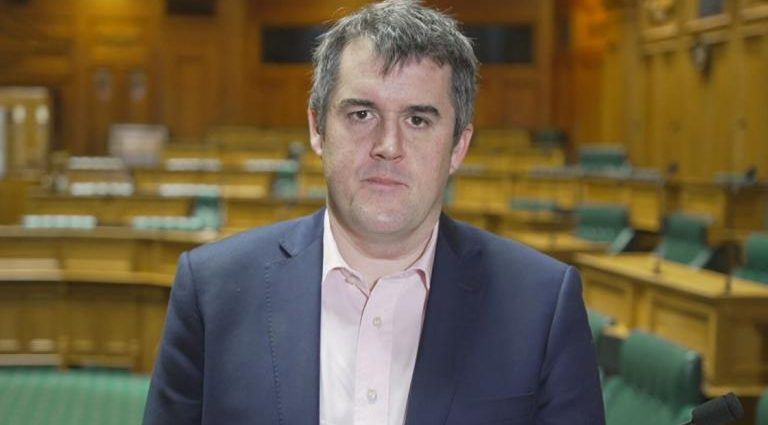PHOTO: Housing Minister Chris Bishop. FILE
Housing Minister Expects Increase in Kāinga Ora Evictions for Unruly Tenants
Housing Minister Chris Bishop anticipates that state housing provider Kāinga Ora will evict an increasing number of disruptive tenants before the trend reverses as tenants understand the consequences of their behavior.
In March, the government directed Kāinga Ora to discontinue the Sustaining Tenancies Framework and to take a firmer stance on managing troublesome tenants. Since then, 14 tenancies have been terminated due to disruptive behavior or persistent rent arrears, compared to eight terminations in all of 2023.
Bishop emphasized the need for accountability among tenants. “For far too long, a small number of Kāinga Ora tenants have ridden roughshod over their neighbors because, under Kāinga Ora’s previous Sustaining Tenancies Framework, people knew there were no consequences for their threatening, abusive, or damaging behavior,” he stated. A new policy for dealing with disruptive behavior now allows for faster termination of tenancies.
In the past three months, there has been a notable increase in Section 55A formal warning notices issued for disruptive behavior, with 80 notices compared to 13 in the same period last year. Bishop highlighted the importance of these actions: “I think there need to be consequences for bad behavior. In the past, there simply haven’t been. Kāinga Ora has not used the tools available to it through the Residential Tenancies Act and its own policies, and they’re now starting to implement different policies and use these tools, and that’s a good thing.”
Bishop also pointed to the urgent need to address the social housing crisis, with around 24,000 families on the waitlist and over 2,000 families living in emergency housing motels. “The message to Kāinga Ora tenants is clear: if your actions are causing your neighbors to live in fear and misery, your time is up. Change your behavior now or face the consequences,” he warned. He added that those on the waiting list deserve a chance to have a home, and that persistent abusers of social housing must eventually forfeit their privilege to make room for others.
The Citizens Advice Bureau has noted an increase in eviction-related inquiries concerning Kāinga Ora homes, jumping from 8 percent to 24 percent compared to the same period last year. National advisor Sacha Green acknowledged the complexity of the issue, noting that perceived problematic behavior often stems from underlying factors such as mental health issues, addiction, and poverty. Some terminations may also relate to Healthy Homes standards.
Bishop expects the rate of evictions to eventually decline. “I think what will become clear is that once people figure out that Kāinga Ora is not going to take a soft-touch approach to disruptive tenants anymore, we may see those numbers continue to increase for a while and then, you know, potentially peak and start to fall. Let’s just wait and see how people respond, but that is certainly the intention of the policy,” he said.
The National Party promised to crack down on unruly Kāinga Ora tenants during its election campaign and to tighten eligibility for emergency housing. While the Greens criticized the move as “cruel,” supporters argue that the biggest beneficiaries will be other Kāinga Ora tenants living near the worst offenders. Some Kāinga Ora tenants have expressed skepticism about the policy to RNZ.
In March, Bishop stated that the government must eventually draw the line, affirming that social housing is a privilege that can be revoked if abused.
SOURCE: RNZ















